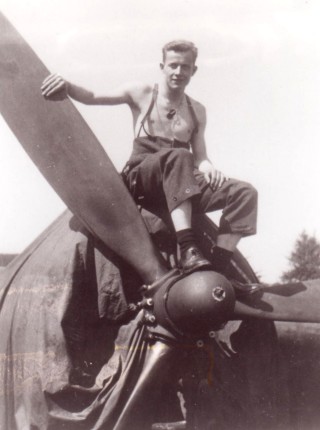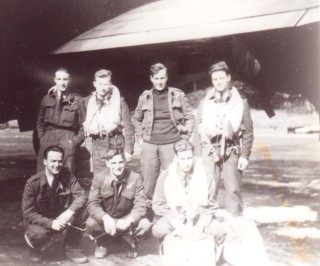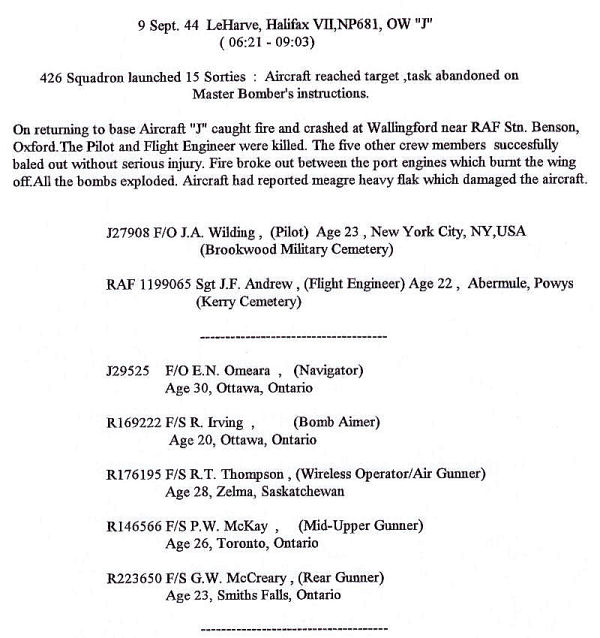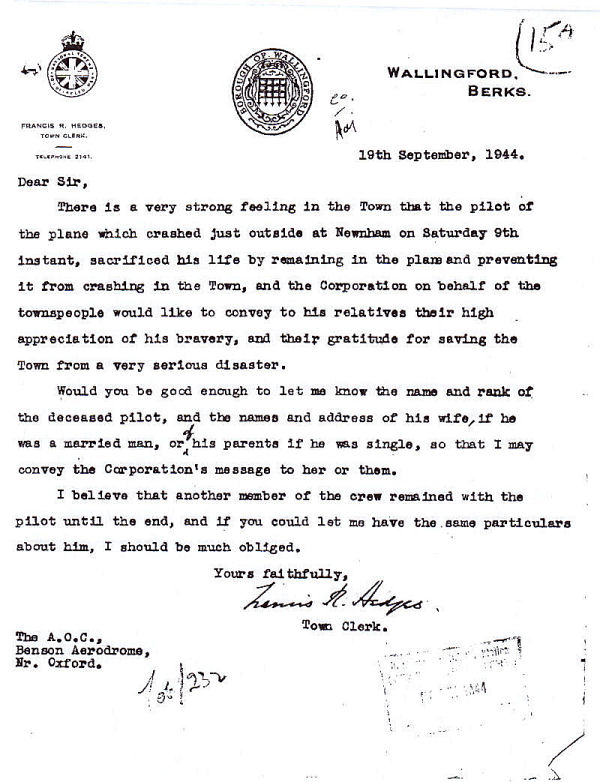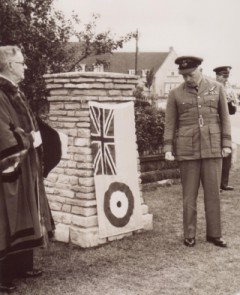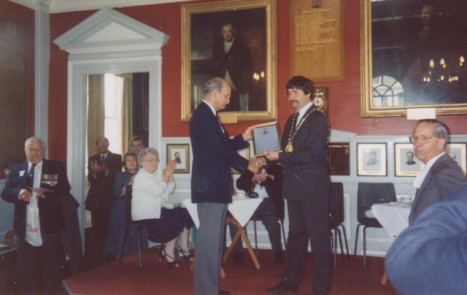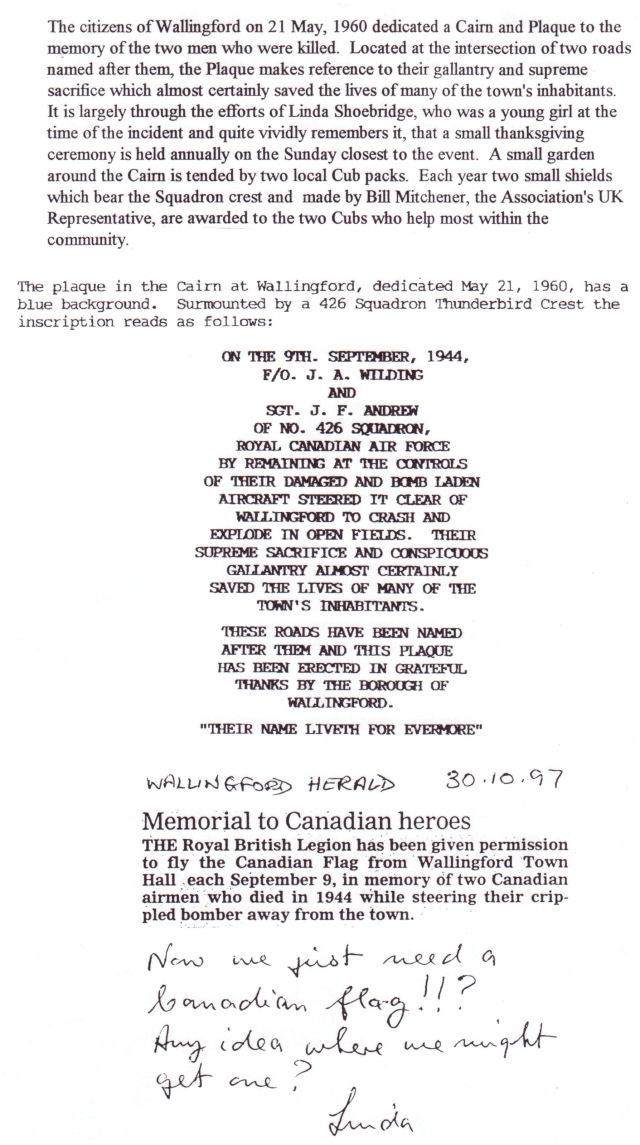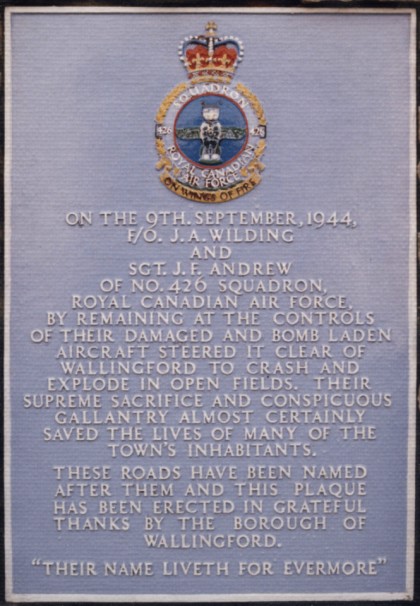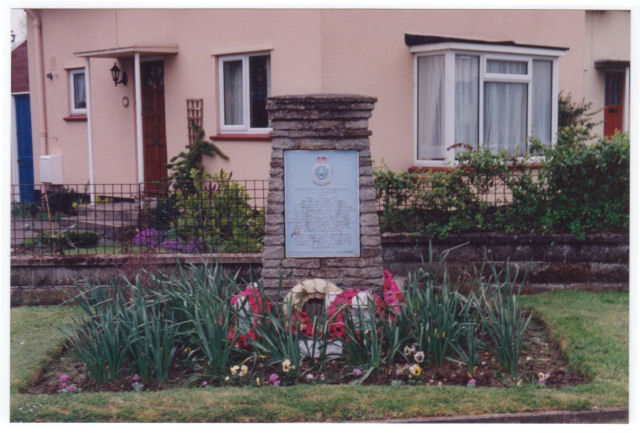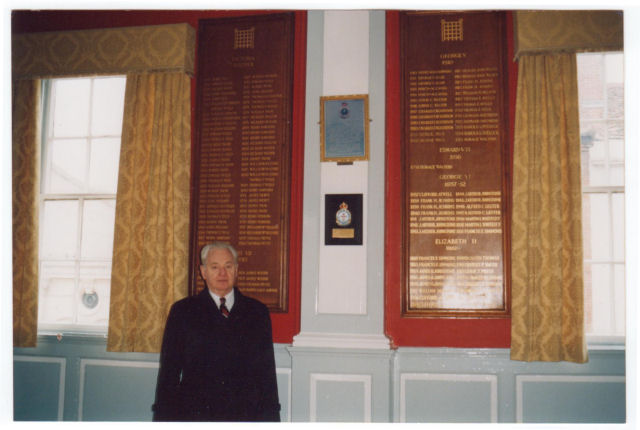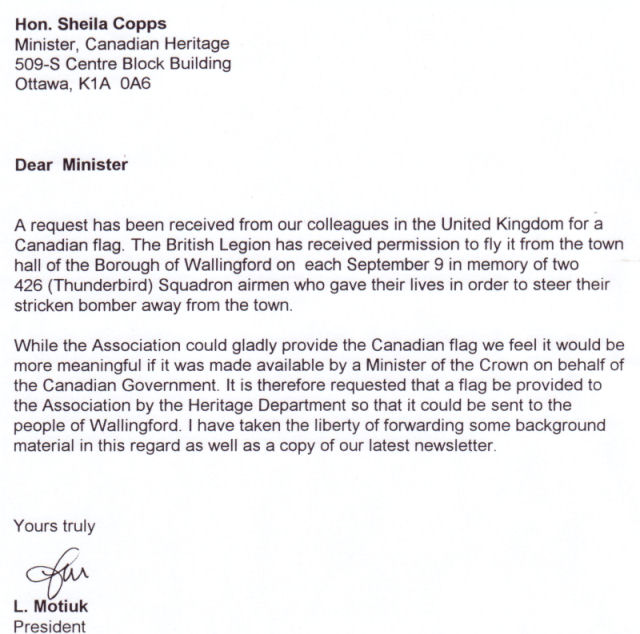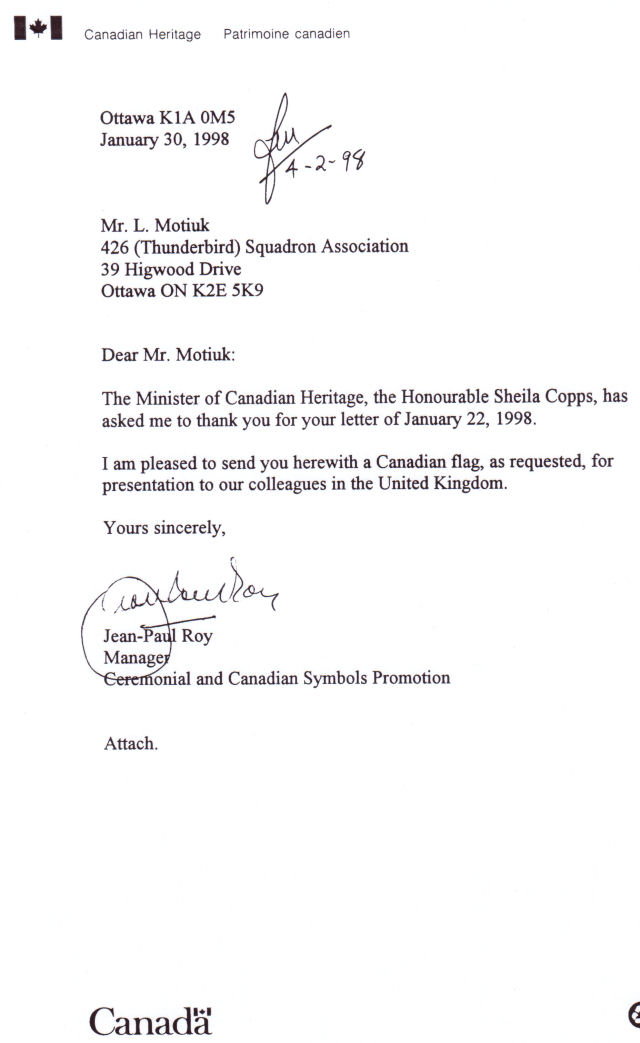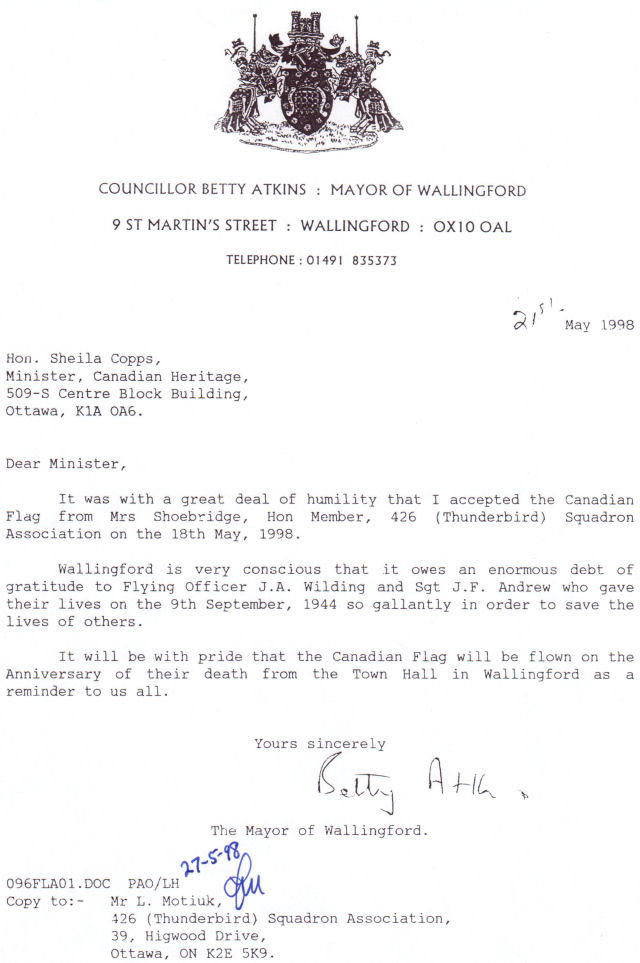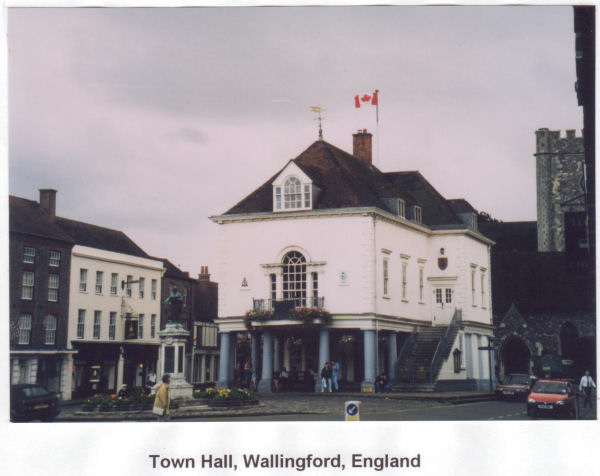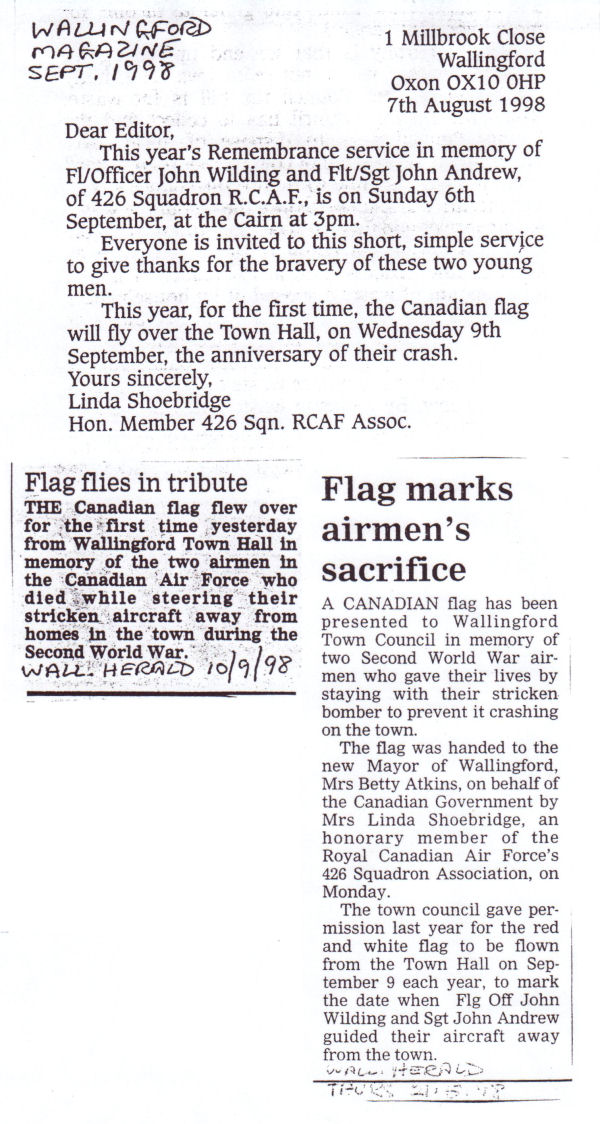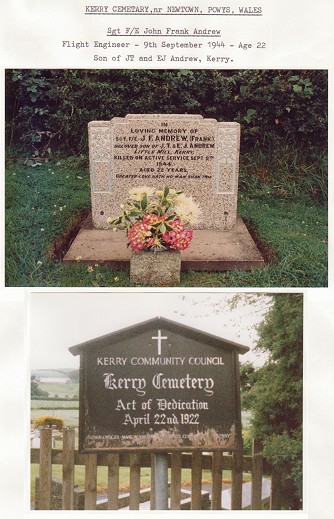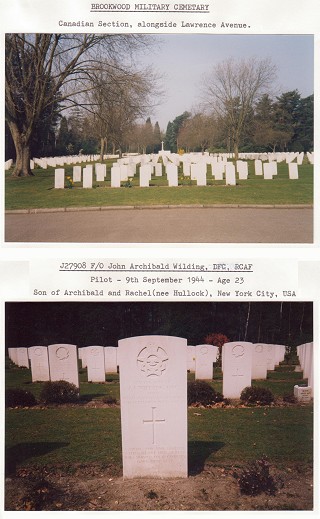The Wallingford Story
Distinguished Flying Cross | F/O Wilding and crew were on the way home from an abondoned mission (Le Harve) when their port outer engine exploded into flames at about 3000 feet. Wilding ordered his crew to "abandon aircraft", which they did, as the Halifax dropped in altitude. Wilding and Andrew stayed at the controls. Just before it crashed, the aircraft was seen steering clear of the town of Wallingford, Oxfordshire. As the port wing folded, the aircraft turned over on its back and spun in at Newnham Murren, Crowmarsh, just across the Thames from the eastern boundary of Wallingford. When the aircraft's three-ton bomb exploded, the blast rattled buildings, shattered windows and, in the part of town nearest the river, shook ornaments right off the walls. Wilding was found a few hundred yards away from the crash crater, inexplicably lacking any trace of parachute harness or pack. Andrew was found about twenty-five yards from Wilding, firmly strapped into his parachute harness and with his pack lying unopened beside him. An investigation found that the No 7 cylinder had blown off the port outer engine and that there was considerable internal damage. This was the most common failure of the Halifax XVI Hercules engine. Flying Officer J.A. Wilding had completed nineteen sorties and, for his actions with No 426 Sqn, was Mentioned in Despatches and awarded the Distinguished Flying Cross posthumously. He is buried in Brookwood Military Cemetery at Woking, Surrey. Sergeant J.F. Andrew, also Mentioned in Despatches posthumously, had completed fifteen sorties; he is buried in Kerry Cemetery, Powys. | |
|
| |
| ||
| ||
| ||
Wallingford Cairn | ||
L/Col Larry Motiuk (Ret'd), Wallingford Town Hall, 27 April 1995 | ||
| ||
| ||
| ||
| ||
| ||
| ||
| ||
















































